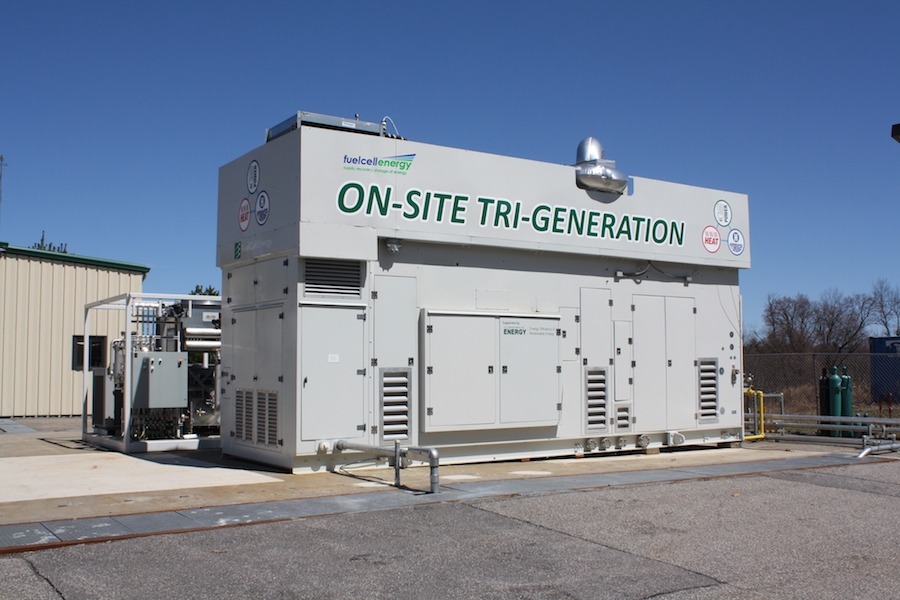
Features
Energy & Power
Generation
Toyota building world’s first MW-scale hydrogen power plant
December 1, 2017
By Anthony Capkun
 Photo courtesy FuelCell Energy Inc.
Photo courtesy FuelCell Energy Inc. November 30, 2017 – Toyota Motor North America Inc. reports it will build the world’s first megawatt-scale carbonate fuel cell power generation plant with a hydrogen fueling station to support its operations at the Port of Long Beach, Calif.
The SureSource Tri-Gen facility will use bio-waste sourced from agricultural waste to generate water, electricity and hydrogen. When it comes online in 2020, the facility will generate about 2.35 MW of electricity daily, and enough hydrogen (1.2 tons) to meet the daily driving needs of nearly 1500 vehicles.
The power generation facility will supply Toyota Logistics Services’ (TLS) operations at the Port, “making it the first Toyota facility in North America to use 100% renewable power”.
“Tri-Gen is a major step forward for sustainable mobility and a key accomplishment of our 2050 Environmental Challenge to achieve net zero CO2 emissions from our operations,” said Doug Murtha, group vice-president, Strategic Planning.
In addition to serving as a “key proof-of-concept for 100% renewable, local hydrogen generation at scale”, the facility will supply all Toyota fuel cell vehicles moving through the Port, including new deliveries of the Mirai sedan and Toyota’s heavy duty hydrogen fuel cell Class 8 truck, known as Project Portal.
To support these refueling operations, Toyota says it has also built—with the help of Air Liquide—one of the largest hydrogen fueling stations in the world onsite.
Tri-Gen was developed by FuelCell Energy, with the support of the U.S. Department of Energy, various California agencies, and the University of California at Irvine (whose research helped develop the core technology).
“This is an innovative and replicable global model for building an affordable hydrogen infrastructure to generate renewable transportation fuel that facilitates the wider adoption of fuel cell electric cars, trucks and buses,” said Chip Bottone, CEO, FuelCell Energy.
FuelCell Energy’s distributed hydrogen solution co-produces hydrogen and power from methane-based fuels, such as biogas. The methane is reformed to hydrogen using water and heat produced by the fuel cell, resulting in hydrogen production without water consumption.
— Photo courtesy FuelCell Energy Inc.